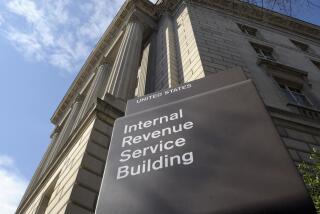Obama’s tax plan
Does an income of $250,000 really make one “rich,” as Barack Obama says? That’s the point at which taxes would begin to go up under Obama’s tax plan, and that’s the annual income he cited in August when asked by Pastor Rick Warren to give his definition of “rich.”
Liberals, unlike conservatives, need an accurate definition of wealth because they think it’s an important distinction. Democrats are constantly fighting to make taxes more progressive, and the definition of wealth is the subtext of nearly each successive hot economic topic -- including the alternative minimum tax, the Bush tax cuts, Social Security and even the current financial crisis and proposals for tax surcharges starting at $1 million. (Republicans, by contrast, don’t believe that taxes should be based on one’s ability to pay, so they don’t really care who’s rich and who isn’t.)
Unfortunately, the liberal definitions of wealth make little sense. Hillary Rodham Clinton and John Edwards identified even lower amounts than $250,000 as rich. One liberal columnist recently asserted that earning in the top 3% (roughly $200,000) makes you “economic royalty.” I guess they figure that’s reasonable, given that the median income in the United States is about $50,000.
But percentages are pretty arbitrary. Why stop at the U.S.? Why not consider the whole world? Considered globally, an income of $50,000 puts you in the top 1%. Do you feel richer now?
In my opinion, wealth is an absolute, not a relative, concept. You’re not rich just because you make more than I do (believe me). What’s more, being rich isn’t really about income. It’s about assets.
A more useful definition would be: savings sufficient to live an affluent life without working.
Just how much is that? There is no one answer. This is John McCain’s and Obama’s second mistake. Where you live (and the related cost of living, local taxes, etc.) and your family size are keys to whether you are rich.
But it is possible to determine how much in assets would generate, say, $250,000 of income annually. If we assume that one withdraws 5% of one’s savings annually for living expenses (a reasonable amount in order to keep up with inflation and not deplete your capital), then it would require about $5 million in post-tax/$7.5 million in pre-tax savings to generate $250,000.
The accuracy of this definition can be tested by comparing it to the traditional standard of what was once considered rich: For most of the 20th century, you were rich if you were a millionaire. Today, it takes roughly $7 million in current dollars to equal the $1 million of 1960, according to MeasuringWorth.com. Meanwhile, $250,000 today is the same as roughly $35,000 in 1960. Did anyone think that an annual income of $35,000 was rich then? (The answer is no. Not even close.)
In fact, a household earning $250,000 today would have difficulty squeezing out even $50,000 in savings every year -- much less quitting work and buying the second homes and yachts and private planes that we associate with the truly rich. Obama must realize this.
So what’s really going on here? Just this: Obama wants to raise taxes, but he doesn’t want to hit those perceived as middle class. But his inaccurately low definition actually hurts liberals, for a number of reasons. For one thing, there are no doubt a substantial number among the 12-million-plus households reporting $100,000-$200,000 in annual income who are put off by the prospect of having to pay higher taxes if their income grows.
The inaccurate definition also alienates allies among the right who might support higher taxes at higher levels of income. Conservative columnist Ben Stein, for instance, is pushing for a 10% surcharge on the incomes of the truly rich -- those whose incomes exceed $5 million -- to be devoted to healthcare. Liberals are paying little attention.
It’s also based on a fallacy that if you want to generate any real government revenue, you have to increase taxes on the many households that earn between $250,000 and $500,000 a year. Yet there is now more taxable income among the 140,000 households that report earning more than $2 million annually than there is among the 10 times as many that earn between $250,000 and $500,000. This does not mean that taxes shouldn’t be touched for those making between $250,000 and $500,000, but why should they pay the same rate as someone making $2.5 million or $25 million?
Finally, the misdefinition distracts from the maldistribution of wealth -- which is much worse than the maldistribution of income -- and from the focus on policies to address it, such as the inheritance tax or a more progressive capital gains tax.
Maybe what we need is a new term for those who have a lot of money but not enough to just stop working. The Near Rich? The Kinda Comfortable? The Ultra-Middle Class?
If Obama and populist liberals won’t define wealth accurately, then taxes will never be as progressive as they should be, and they will continue to hurt their own cause. After all, if millions of voters are unfairly labeled rich by the Democrats, they might as well vote for the party of the rich -- which is, of course, the Republican Party.
Mitchell Rofsky, the former chairman of Business for Social Responsibility, also headed the Working Assets Mutual Funds, a socially responsible mutual fund.
More to Read
A cure for the common opinion
Get thought-provoking perspectives with our weekly newsletter.
You may occasionally receive promotional content from the Los Angeles Times.






